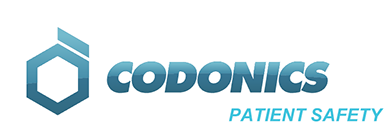March 14, 2024
Orangeville’s local hospital is leading the way in health care, becoming one of the first hospitals in Canada to implement new automation technology that will better help physicians administer drugs in the operating room.
Headwaters Health Care Centre has marked one year since implementing a BD Pyxis Anesthesia Station (PAS) and Codonics Safe Label System (SLS) in each of their operating rooms.
 The BD Pyxis Anesthesia Station (PAS) gives anesthesia providers quick and secure access to a controlled substance for a patient while the Codonics Safe Label System (SLS) uses barcode technology to read information from a drug container and electronically verifies it against the hospital’s pharmacy-approved database during the operation.
The BD Pyxis Anesthesia Station (PAS) gives anesthesia providers quick and secure access to a controlled substance for a patient while the Codonics Safe Label System (SLS) uses barcode technology to read information from a drug container and electronically verifies it against the hospital’s pharmacy-approved database during the operation.
“This allows us to have a high-level traceability of where medicines are used, when they’re used and for what patients so that we can have a good audit trail,” said Amita Gujral, pharmacy manager for Headwaters.
Prior to putting the new machines into practice in the operating rooms, open trays were placed in the rooms with medications and marked down manually.
According to the hospital, the combination of the BD Pyxis Anesthesia Station and Codonics Safe Label System in the operating room helps to eliminate preventable medication or labelling errors and simplifies workflows by reducing the time it would take to manually report dispensed drugs.
The new technology is also an aid in the hospital’s focus on patient safety and quality care.
“It helps with making sure the correct medications are being used. Also, if there’s an allergy associated, it could highlight there’s an allergy to a medication for a specific patient,” explained Ann Itwaru, manager of surgical services and MDRD. “It’s a bit of a double check. Sometimes it’s nice to have computer systems that prevent human error.”
Another benefit of the new system has been its ability to monitor the drug inventory needed daily in the operating rooms, based on usage data collected.
“It’s great because we aren’t running out of medications mid case, there’s quite an abundance of supply in there. A lot of times, the nurses would have to get additional medications for the physicians halfway through the day. I think it’s really eliminated that. It also lets us see our utilization of the medications to see which ones we can keep a lower supply of or increase our stock in, and keep track of our expiry dates so we’re not wasting any medications as well,” said Itwaru.
Headwaters nurses and physicians were educated on the equipment as well as directly involved in the organization of medications within the station.
Alessandra Centofanti, a perioperative clinical nurse educator at Headwaters, has worked in the operating rooms with the new technology and spoke about its implementation.
“Being able to scan the medication and have the scanner also speak to Meditech to confirm makes you feel more secure. It’s another check that we can make sure we’re delivering the correct medication to the patient. It helps us provide the best care for our patients, making sure that we’re safe, which is something that means a lot to us.”
Since bringing the technology into their operating rooms, Gujral said that Headwaters has been contacted and visited by staff from other hospitals inquiring about the effectiveness of the technology.
“We have, in theory, become a sort of reference site to other hospitals by having this technology first in the vicinity,” said Gujral.
The cost of the new system, which included 15 automated dispensing units, was funded through the Morningview Foundation.
Written By Paula Brown Local Journalism Initiative Reporter
